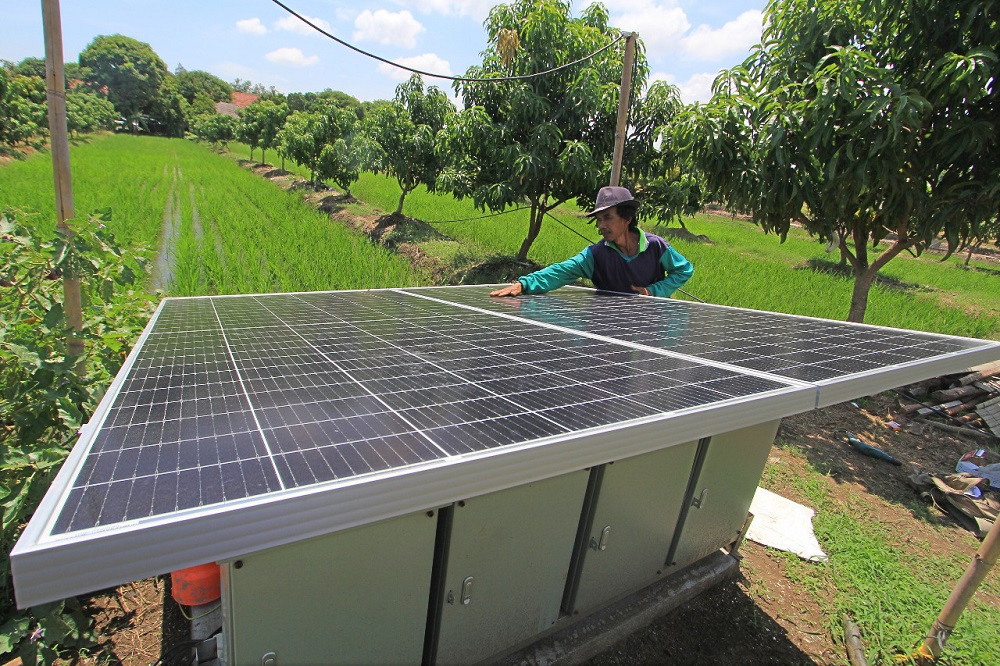

Smart Solar: Transforming Homes with Solar Panel Technology
As technology continues to advance, solar panels have evolved from a conventional energy source to a smart home technology, revolutionizing the way we harness and utilize solar power.
The Evolution of Solar Panel Technology
Solar panel technology has undergone a remarkable evolution. From basic photovoltaic cells, advancements in materials and design have given rise to smart solar panels that are not only efficient in energy production but also equipped with intelligent features.
Integrating Solar Panels into Smart Homes
The integration of solar panels into smart homes signifies a shift towards energy-efficient and interconnected living spaces. Smart solar technology allows homeowners to monitor, control, and optimize their energy consumption, paving the way for a more sustainable and cost-effective lifestyle.
Real-time Monitoring and Energy Optimization
Smart solar panels come with real-time monitoring capabilities, providing homeowners with detailed insights into their energy production and consumption. This data empowers users to make informed decisions, optimize energy usage, and ultimately reduce their carbon footprint.
Energy Storage Solutions for Round-the-Clock Power
One of the key features of smart solar technology is the integration of energy storage solutions, such as advanced batteries. This enables homeowners to store excess energy generated during sunny days for later use, ensuring a continuous and reliable power supply, even during periods of low sunlight.
Home Automation and Energy Efficiency
The synergy between solar panels and home automation systems enhances overall energy efficiency. Smart homes equipped with solar technology can automate various functions, such as adjusting lighting, temperature, and appliances based on energy availability and consumption patterns.
Cost Savings and Return on Investment
While the initial investment in smart solar technology may seem substantial, the long-term benefits and cost savings cannot be overlooked. Energy-efficient homes powered by solar panels experience reduced electricity bills, and some regions offer incentives, tax credits, and rebates to further enhance the return on investment.
Enhanced Durability and Longevity
Smart solar panels are designed with durability in mind. Advanced materials and manufacturing techniques contribute to their longevity, ensuring a reliable and sustainable energy solution for homeowners over an extended period. This durability further emphasizes the economic viability of adopting smart solar technology.
Environmental Impact of Smart Solar Homes
The environmental impact of smart solar homes extends beyond individual households. As more homes embrace this technology, there is a cumulative effect of reducing overall carbon emissions, lessening dependence on traditional power grids, and contributing to a more sustainable and resilient energy infrastructure.
Challenges and Future Prospects
While the adoption of smart solar technology is on the rise, challenges such as initial costs and the need for standardized regulations still exist. However, ongoing advancements and increasing demand are likely to drive down costs and pave the way for a future where smart solar homes become the norm rather than the exception.
Empowering Homeowners for a Sustainable Future
In conclusion, smart solar technology is empowering homeowners to take an active role in creating a sustainable future. The integration of solar panels into smart homes not only offers economic benefits and energy efficiency but also positions individuals as contributors to a global shift towards cleaner and smarter energy solutions. To explore more about the potential of solar panel home technology, visit Solar Panel Home Technology.
Embracing smart solar technology is not just an investment in a single home; it’s a collective step towards a more sustainable and interconnected world where every home plays a part in shaping the future of energy consumption.




.jpg)



